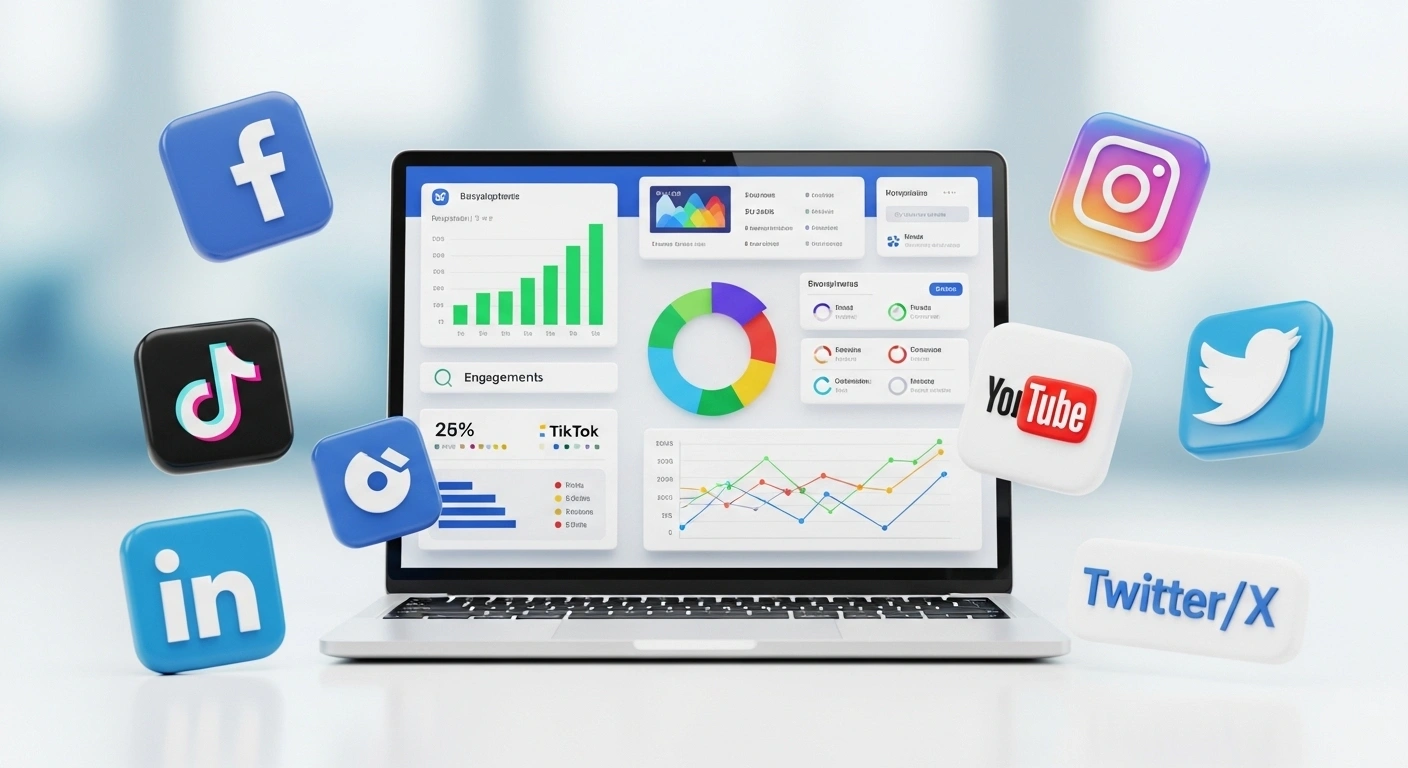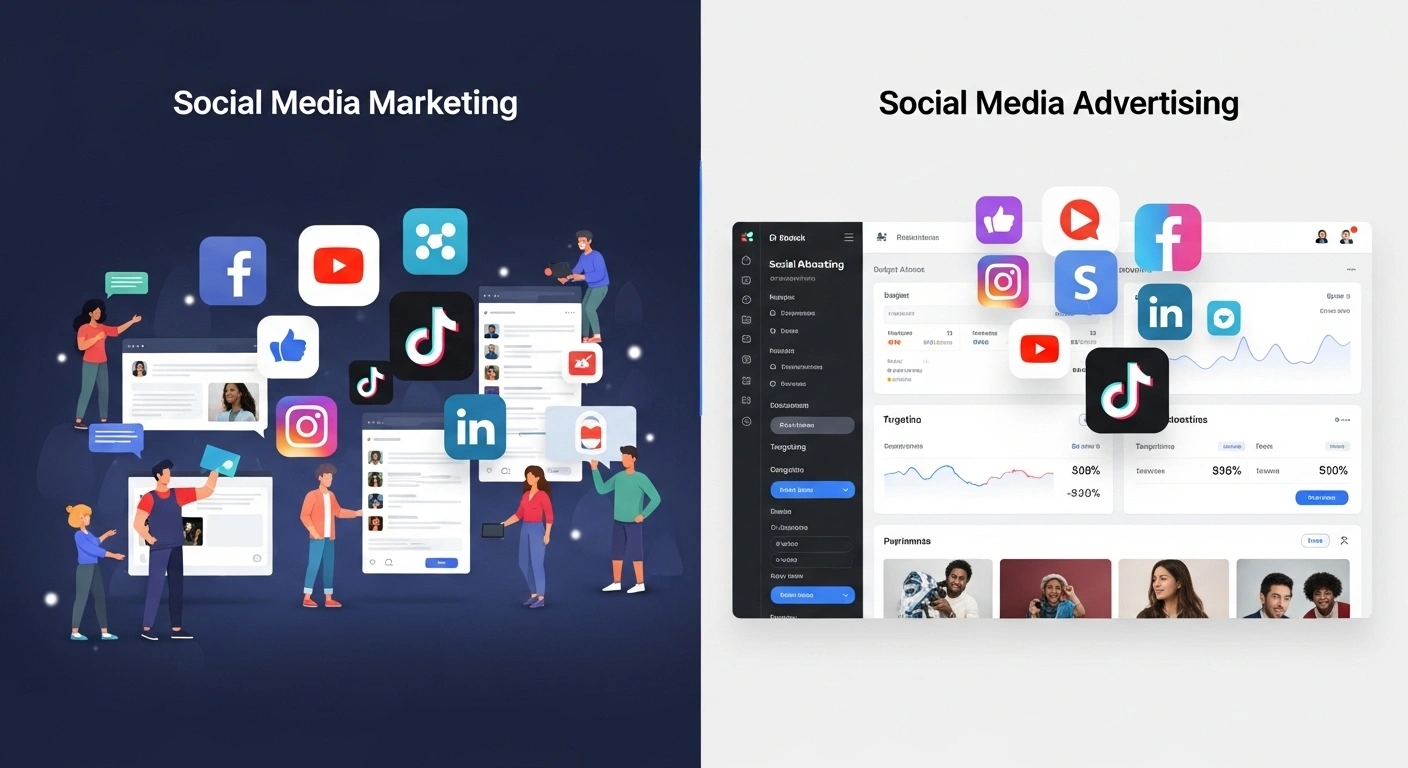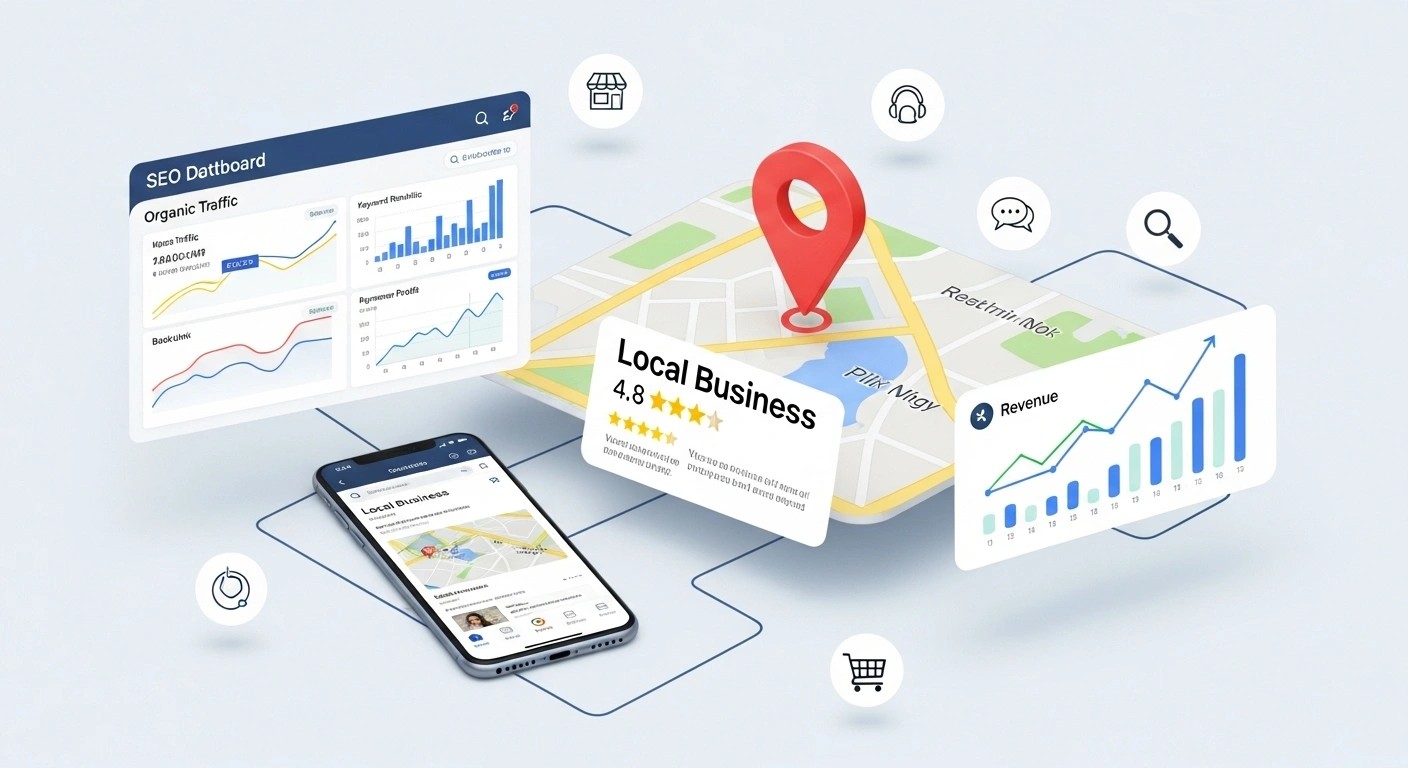Introduction
In today’s fast-paced digital landscape, social media marketing has grown into one of the most effective ways to connect with customers and build a strong online presence. With billions of people using platforms such as Facebook, Instagram, TikTok, LinkedIn, and YouTube every day, businesses have a unique opportunity to reach audiences where they spend most of their time.
Unlike traditional methods, social media allows two-way communication. Customers can react, comment, share, and directly engage with brands. This creates a sense of trust and community that no billboard or TV commercial can match. Whether you focus on organic growth, explore social media advertising, or work with a professional social media marketing agency, these strategies can completely transform the way your business attracts and retains customers.
What is Social Media Marketing?
Social media marketing is the process of using online platforms to promote products, services, and ideas to a targeted audience. It includes content creation, audience engagement, paid advertising campaigns, and analytics to measure success.

The purpose is not just to post random updates. It is about building a long-term strategy that consistently delivers value to your audience. A brand that invests in social media builds credibility, encourages interaction, and influences purchasing decisions. In short, social media is no longer just a place to chat with friends, it’s a marketplace where businesses and customers meet.
Why Social Media Marketing Matters
Social media has become an essential part of the customer journey. From discovering a brand to researching products and finally making a purchase, people rely on social platforms every step of the way.
For businesses, this means visibility, accessibility, and engagement at a global scale. A well-managed page can help a local shop gain recognition far beyond its neighbourhood. Larger companies, meanwhile, use social media advertising to target customers in specific regions, age groups, or interests. The result is marketing that is more precise, cost-effective, and measurable compared to traditional channels.
Social Media Marketing vs. Social Media Advertising

It is important to understand the difference between these two terms, since many people use them interchangeably.
- Social Media Marketing: This refers to the overall approach building brand awareness, creating content, interacting with followers, and growing a community.
- Social Media Advertising: This is a paid strategy. It includes running campaigns such as Facebook ads, Instagram promotions, or LinkedIn sponsored posts to boost visibility and reach new customers.
Marketing is the big picture. Advertising is one tool within that picture. Both are necessary for long-term success.
Core Elements of a Strong Social Media Strategy
A successful social media marketing plan requires clarity, creativity, and consistency. Here are three crucial elements every business should consider:
- Audience Understanding: Before posting, know who you are targeting. Study their age, location, interests, and online behaviour
- Platform Selection: Not all platforms serve the same purpose. LinkedIn works for B2B, Instagram for visual products, TikTok for younger audiences, and Facebook for a broad demographic.
- Content Planning: Create engaging content that provides solutions, entertains, or educates. Use videos, images, stories, and written posts to keep your feed diverse.
These three steps lay the foundation for a sustainable strategy.
The Role of Social Media Advertising
Organic reach has declined across most platforms. This means businesses can no longer rely on free posts alone. To cut through the competition, social media advertising has become an essential tool.
Paid ads allow companies to choose exactly who sees their content. Whether you want to target 25-year-olds in a specific city or CEOs in the technology sector, advertising platforms provide precise targeting. They also give performance data, so you can track clicks, conversions, and sales in real time.
For example, Facebook ads can help generate leads, Instagram ads highlight visual content, and LinkedIn ads reach professionals in industries like finance or healthcare. When managed correctly, advertising delivers quick results and high returns on investment.

Should You Hire a Social Media Marketing Agency?
Managing accounts, designing posts, running ad campaigns, and tracking results can quickly become overwhelming. This is why many businesses turn to a social media marketing agency. Agencies provide expert knowledge, creative talent, and advanced strategies that most businesses struggle to manage in-house.
Working with an agency means you can focus on running your business while professionals handle online growth. From graphic design to video creation and ad optimization, agencies bring resources that save time and reduce mistakes. The investment is often worth it, since a well-executed campaign can bring in far more revenue than it costs.
Benefits of Hiring an Agency
Here are three key benefits of hiring a professional agency:
- Expertise and Experience: Agencies stay updated with new platform rules, algorithms, and trends.
- Creative Content: From designs to videos, agencies create posts that stand out in crowded feeds.
- Optimized Advertising: With better targeting and testing, agencies ensure your ad budget is spent effectively.
The Future of Social Media Marketing

The digital world changes rapidly, and social media marketing is no exception. Several trends are shaping its future. Short-form videos continue to dominate platforms like Instagram Reels and TikTok. Influencer marketing is shifting toward micro-influencers who provide authentic connections with their audiences. Artificial intelligence is now powering smarter ad targeting and even helping generate content.
Another major shift is social commerce, where users can shop directly inside social apps without visiting a website. For businesses, this means the sales process is becoming even more seamless. Those who adapt early to these trends will enjoy a strong competitive advantage.
Common Mistakes to Avoid
Even though social media offers endless opportunities, many businesses make mistakes that limit success. The most common errors include posting without a strategy, ignoring analytics, over-promoting products, and failing to engage with comments. Another mistake is using the same type of content across every platform without adjusting to audience preferences.
By avoiding these mistakes, businesses can maximize the value of their social media marketing efforts and ensure long-term growth.
Conclusion
Social media marketing is more than a trend, it is a necessity for modern businesses. By combining organic engagement with targeted social media advertising, companies can build awareness, attract new customers, and increase revenue. Partnering with a reliable social media marketing agency can further strengthen results, especially for businesses that want to scale quickly.
Conclusion
The future of marketing is social, and those who embrace it now will stay ahead of the competition.
Ready to grow your business with powerful social media marketing strategies? Our team at Fast Digital 360 specializes in creating engaging campaigns, targeted advertising, and data-driven results that help brands succeed online.
Get in touch with us today: Contact Us
Frequently Asked Questions (FAQs)
1. What is social media marketing?
Social media marketing is the use of platforms like Facebook, Instagram, LinkedIn, and TikTok to promote products and services, engage with customers, and build brand awareness.
2. Is social media advertising necessary?
Yes. With organic reach declining, social media advertising is essential to guarantee visibility. Paid campaigns allow businesses to target specific audiences and generate measurable results.
3. Should I hire a social media marketing agency?
Hiring a social media marketing agency is helpful if you want professional content creation, advanced advertising strategies, and consistent growth without handling everything yourself.
4. How can I measure success in social media marketing?
Success can be measured using engagement rates, follower growth, website traffic, leads, and conversions. Most platforms provide built-in analytics to track performance.




